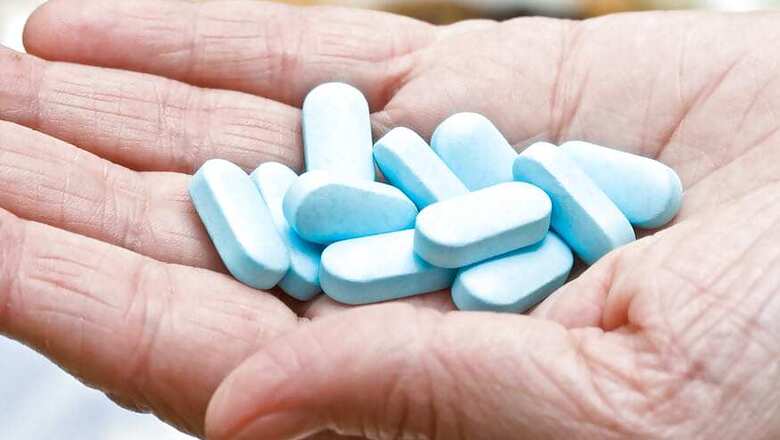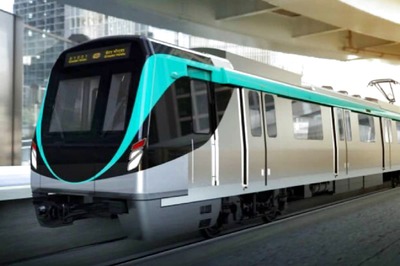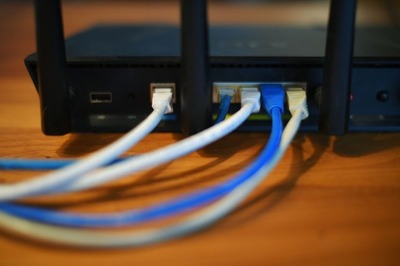
views
New Delhi: Delhi’s Aam Aadmi Party on Monday announced plans to crack down on private hospitals in the city that include capping prices for all drugs and consumables not on the National List of Essential Medicines (NLEM).
Delhi’s health minister Satyendra Jain invited public comments for draft rules to not only cap prices but also curb a host of issues private hospitals have been accused of - medical negligence, not releasing bodies on time, overcharging and forcing patients to buy drugs from in-house pharmacies.
The draft rules propose a mechanism to make sure that private establishments prescribe only drugs and consumables on the NLEM when possible, and that all chemists, pharmacies, nursing homes and hospitals make sure these drugs are available.
The rules cap the price of the non-NLEM drugs at 50 per cent over the procurement price. Thus clinical establishments are to bill patients these drugs at their MRP or at procurement price plus 50 per cent, whichever is less. The same cap applies to disposables and consumables like syringes, needles and gloves. The price cap for implants has been proposed at 35 per cent.
A sub-committee has been constituted to monitor prices in private establishments, stated the draft rules, adding that no patient can be forced to buy only from the in-house pharmacies of hospitals.
The rules were announced a day after a citizens group launched a campaign against unethical medical practices in private hospitals and nursing homes. The Campaign for Dignified and Affordable Healthcare has at its forefront Jayant Singh, whose seven year old daughter Adya died of dengue in Gurugram’s Fortis hospital in November last year, and Gopinder Singh Parmar, whose seven-year-old son Shaurya Pratap died of dengue in Medanta MediCity, Gurgaon, in October kast year.
Singh’s family was charged Rs 16 lakh by Fortis, as was Parmar’s by Medanta. Their cases were two of a series of cases of negligence and gross overcharging by private hospitals that sent shockwaves through Delhi last year.
In February, 2018, the National Pharmaceutical Pricing Authority examined the bills or four major private hospitals in the National Capital Region, without naming them. Their investigation found that private hospitals in Delhi-NCR routinely prescribe expensive branded drugs instead of NLEM ones and also earn profits up to 1737 per cent on drugs, consumables and diagnosis.
NLEM drugs, said the NPPA report, were only 4.10 per cent of the billing amounts while expensive non-scheduled drugs that have no price caps make up for 25.67 per cent.
In the days after Singh’s and Parmar’s cases came to light, the Delhi government was chastised by the central health ministry for not ratifying the Clinical Establishments Act, the only legislation that regulates the private health sector, nor having their own version of the law.
The rules proposed on Monday mandate that there can be no hidden charges in packages for operative procedures and any additional procedure performed on a patient shall be charged at 50 per cent of its price. If a patients dies in the emergency room or casualty department of a hospital, within six hours of their arrival, the hospital shall waive 50 per cent of the total bill. If a patient dies within six to 24 hours of their arrival, the hospital shall waive 20 per cent of the total bill.
No dead body can be detained by a hospital due to non-payment of dues, and any disrespect to the body, including detainments, will count as an offense.
The rules also proposed setting a mechanism to eradicate cuts and commissions in medical practice. That no such cuts and commissions have been made to any individuals, including doctors of allopathy, or any of the AYUSH practices, or organisations, must be declared on a patient’s bill.
No hospital employee will be given their salary or consultation charges in cash. All payments made by a hospital, of Rs20000 and above shall be done by cheque or banking channels, said the rules.



















Comments
0 comment